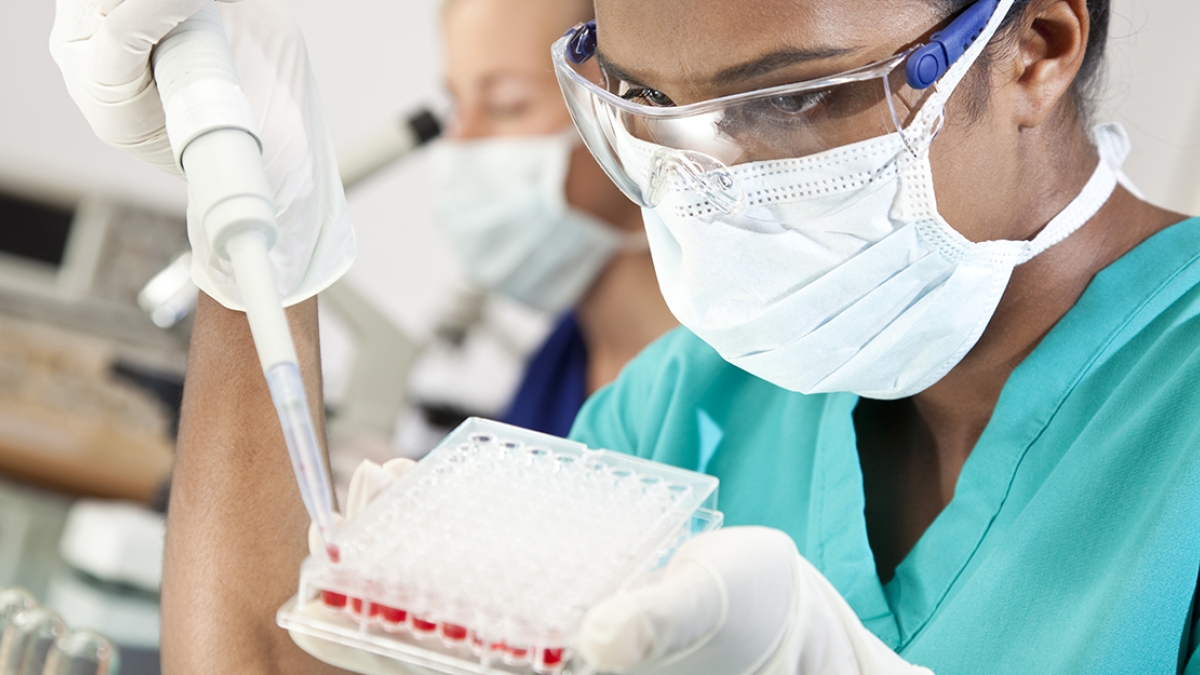Seed grants sprout novel health research

By launching novel research on a small scale, researchers have been able to attract funding needed for larger studies that may make a significant impact in their fields and improve patient care.
People who are severely injured in the upper extremities may experience nerve damage that impairs motor function from shoulder to hand. Unable to flex their elbows, these people cannot fulfill everyday tasks like putting on a shirt or raising a glass of water.
But what if researchers designed a tractable, powered exoskeleton that assists with upper-extremity function? What if it could be controlled by users’ own brains, responding directly to their intentions and gradually reducing assistance as they gain strength?
Such a design is just what Thomas Sugar, a professor at Arizona State University’s Polytechnic School, and Kenton Kaufman, a professor of biomedical engineering at Mayo Clinic, have proposed. Their project is one of eight innovative pilot studies that will be explored through the 2019 Mayo Clinic and Arizona State University seed grant program.
Since 2005, Mayo Clinic and ASU have provided seed funding to new, interdisciplinary and translational joint research projects. By launching novel research on a small scale, researchers have been able to attract funding needed for larger studies that may make a significant impact in their fields and improve patient care.
Each research team includes one researcher from ASU and one from Mayo Clinic. The projects draw on the strengths of each institution.
“The seed grants are symbolic of the synergy between ASU and Mayo Clinic in clinical research,” said Hugo Vargas, medical director of Mayo Clinic’s Office of Clinical Research in Arizona. “The commitment of both institutions to innovate in health care technology and delivery has been a fixture since the inception of the seed grants in 2005. This collaborative effort allows team development between ASU and all three of the Mayo Clinic campuses. The awards aim to capitalize on the strengths of each institution and the evidence points to growth of medical research to the benefit of patients in the respective communities.”
“We are delighted to support the researchers as they work to develop their ideas in a collaborative manner to improve patient outcomes,” said Cheryl Conrad, assistant vice president of research development for the ASU Knowledge Enterprise. “By capitalizing on each team member’s clinical expertise and a commitment to innovative research, ASU and Mayo Clinic are addressing important issues in health and medicine.”
From 2005 through 2017, the Mayo Clinic and ASU seed grants have translated into 57 externally funded projects worth approximately $30.5 million. Seed grant recipients have also shared their knowledge through more than 25 journal publications and by mentoring student researchers.
2019 seed grant projects and lead investigators
“Novel minimally invasive device to induce weight loss”
Junseok Chae, School of Electrical, Computer and Energy Engineering, ASU
Rahmi Oklu, MD, PhD, Radiology, Mayo Clinic
“Integrating genomic and imaging biomarkers for early detection of Alzheimer’s disease”
Yalin Wang, School of Computing, Informatics, and Decision Systems Engineering, ASU
Junwen Wang, PhD, Research, Mayo Clinic
“Bioinspired electrospun fibrous patch for augmenting rotator cuff repair”
Julianne Holloway, School for Engineering of Matter, Transport and Energy, ASU
John Tokish, MD, Orthopedic Surgery, Mayo Clinic
“Myoelectrically controlled power-assist upper-extremity exoskeleton”
Thomas Sugar, Polytechnic School, ASU
Kenton Kaufman, PhD, Orthopedic Surgery, Mayo Clinic
“Interaction between pancreatic triglyceride lipase (PNLIP) and its selective inhibitor”
Matthew D. Green, School for Engineering of Matter, Transport and Energy, ASU
Vijay P. Singh, MD, Center for Clinical and Translational Science, Mayo Clinic
“Promoting efficient muscle repair in Duchenne muscular dystrophy patients”
Alan Rawls, School of Life Sciences, ASU
Elizabeth Jacobsen, PhD, Internal Medicine, Mayo Clinic
“Impact of the extracellular vesicle glycome on brain metastasis”
Chad Borges, School of Molecular Sciences and the Biodesign Institute, ASU
Joy Wolfram, PhD, Mayo Clinic
“Quantifying mitochondrial metabolites to define the role of mitochondria in stem cell function and fate”
Haiwei Gu, College of Health Solutions, ASU
Clifford Folmes, PhD, Department of Cardiovascular Diseases, Mayo Clinic
Learn more about the seed grant program and about the Mayo Clinic and Arizona State University Alliance for Health Care. If you are an ASU researcher, sign up to receive notifications about funding opportunities.
More Science and technology

Science meets play: ASU researcher makes developmental science hands-on for families
On a Friday morning at the Edna Vihel Arts Center in Tempe, toddlers dip paint brushes into bright colors, decorating paper…

ASU water polo player defends the goal — and our data
Marie Rudasics is the last line of defense.Six players advance across the pool with a single objective in mind: making sure that…

Diagnosing data corruption
You are in your doctor’s office for your annual physical and you notice the change. This year, your doctor no longer has your…

